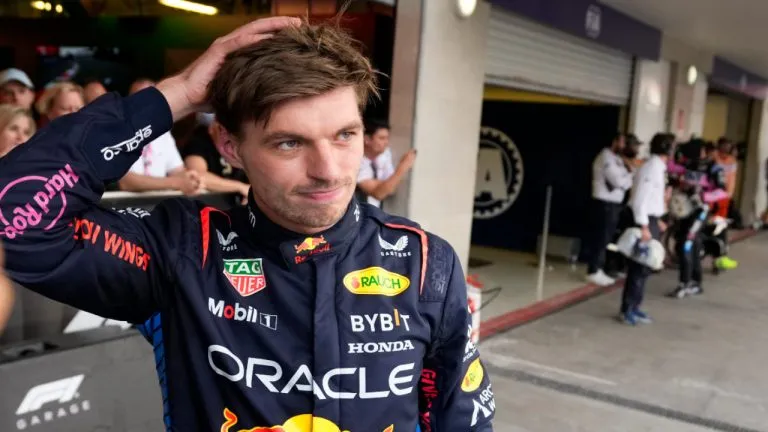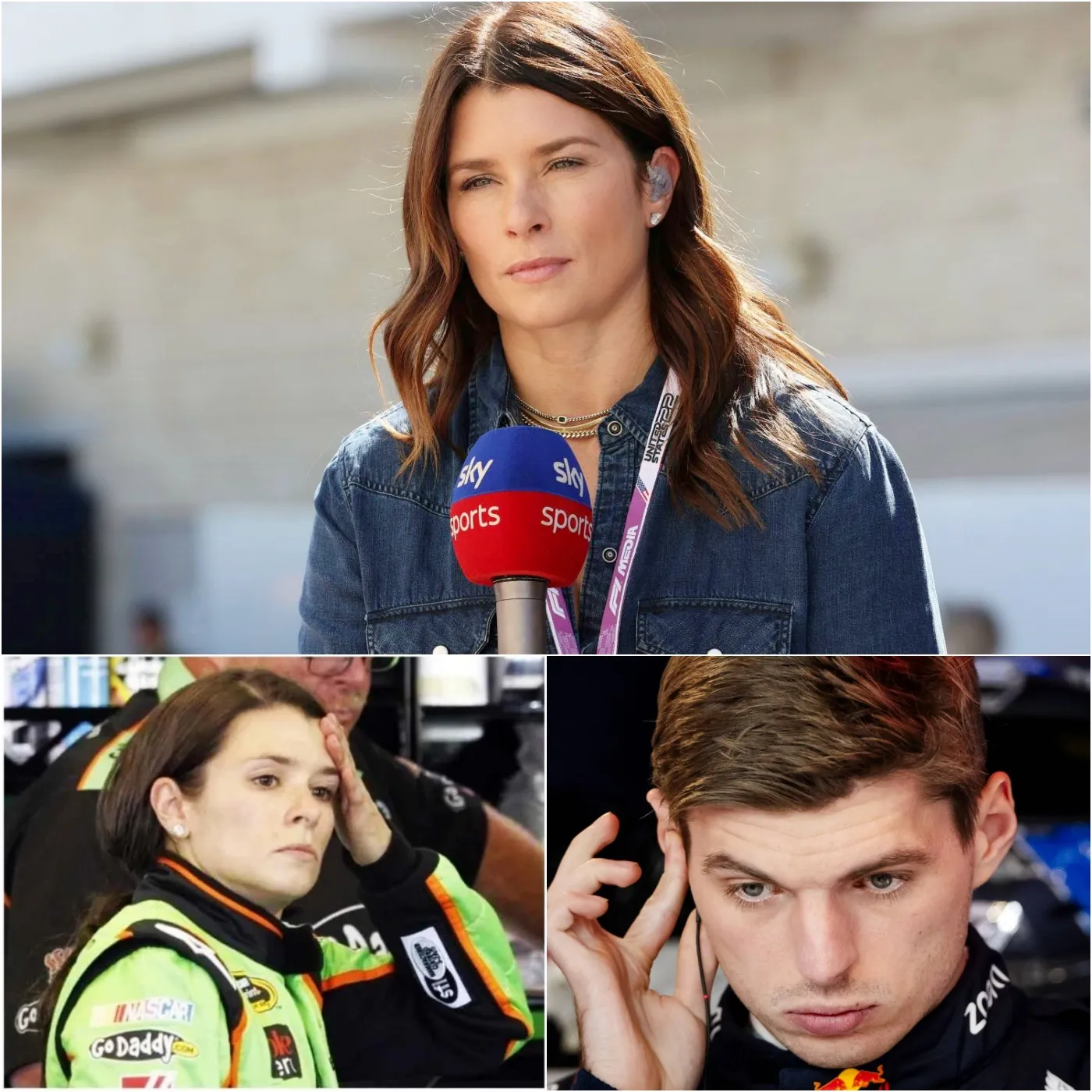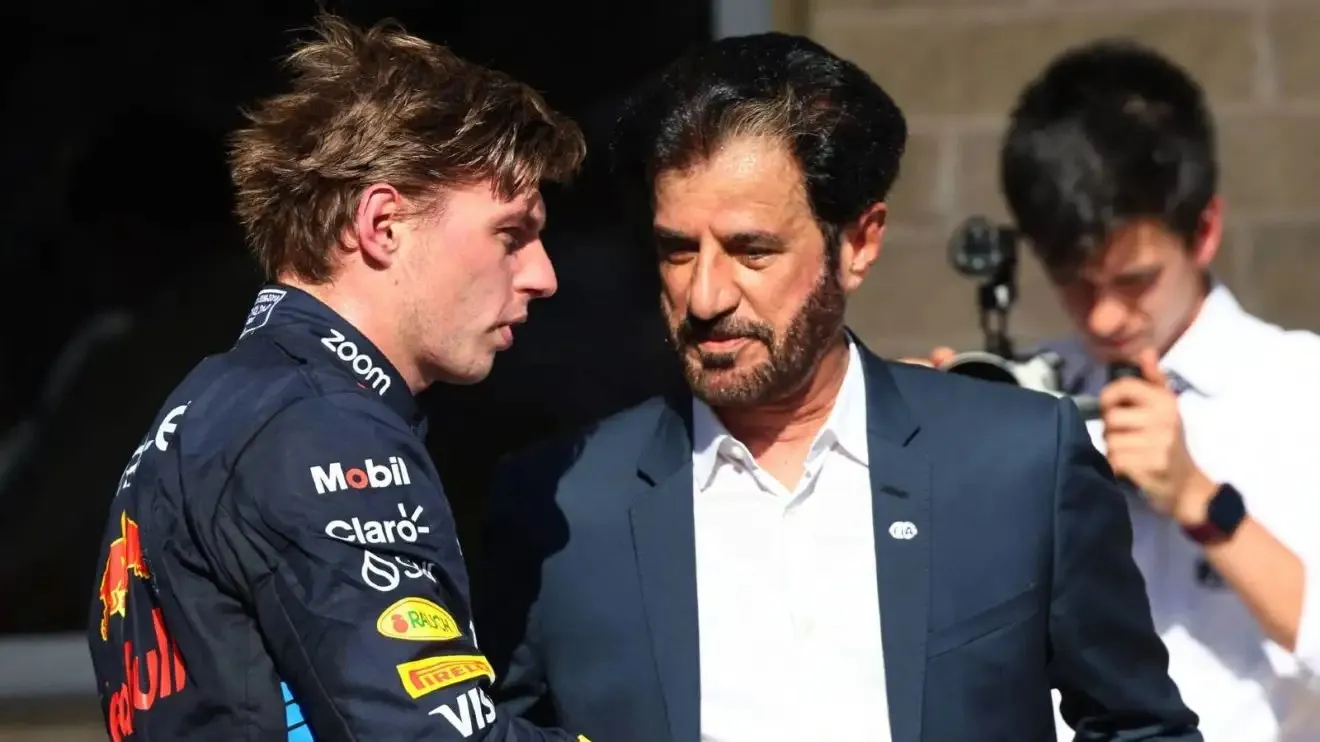In a bold statement that has sent shockwaves through the motorsport world, former racing driver Danica Patrick has suggested that the International Automobile Federation (FIA) may be intentionally undermining the dominance of Red Bull Racing and their star driver, Max Verstappen. According to Patrick, the FIA’s treatment of Verstappen and Red Bull contrasts sharply with the support that has been historically shown to British drivers, raising questions about the governing body’s impartiality.
Red Bull Racing and Max Verstappen have enjoyed unprecedented success in recent years, with Verstappen clinching back-to-back World Championships and Red Bull securing consecutive Constructors’ titles. This level of dominance has sparked debates about the balance of power in Formula 1, and Patrick’s recent comments add fuel to an already heated discussion.
“I can’t help but feel that the FIA’s actions seem to be more geared toward curbing Red Bull’s dominance than they are with supporting their competitors,” Patrick stated. “Max Verstappen has been incredible, but I feel like there’s always something happening that makes you question whether there’s a fair playing field.”
For many, this remark echoes sentiments that have been brewing in the F1 community. Over the past few seasons, there have been several controversial decisions and penalties handed down to Red Bull and Verstappen, such as the infamous “flexi-floor” debate and the ongoing technical scrutiny of the team’s car.
One of Patrick’s key criticisms revolves around the FIA’s perceived preferential treatment towards British drivers, particularly in the context of Lewis Hamilton’s ongoing career. Hamilton, a seven-time World Champion, is widely regarded as one of the greatest drivers in F1 history. His success, combined with his high-profile activism, has made him an iconic figure, but Patrick believes that the FIA has demonstrated an unbalanced level of support for Hamilton and other British drivers.
“The FIA has always been very protective of their British drivers,” she continued. “While I have nothing but respect for Lewis Hamilton and the incredible career he’s had, I can’t help but notice how much support he gets from the FIA. On the other hand, you have Max Verstappen, who is consistently being scrutinized and constantly dealing with regulations that seem to target Red Bull.”
Patrick’s comments come at a time when Verstappen’s dominance has led some to question the FIA’s role in regulating the sport to maintain competitive balance. Critics argue that the governing body, which is responsible for enforcing the rules and regulations of F1, has been overly aggressive in its stance toward the team, possibly out of a desire to prevent a “one-team” championship.
 Max Verstappen, known for his fiery personality, has often expressed frustration with the scrutiny he and his team face, particularly when it comes to the FIA’s decisions. However, Verstappen has also made it clear that he is focused on his performance and his team’s success, and he is determined not to let external factors cloud his ambitions.
“I don’t pay too much attention to what others are saying,” Verstappen said in a recent interview. “I’m here to race, and I’m doing my job. If there are people who think we are getting special treatment, they are entitled to their opinion, but I know we are doing everything by the book.”
Despite Verstappen’s stoic response, the controversy surrounding the FIA’s decisions has only intensified, with many questioning whether the governing body is too heavily influenced by the political dynamics of the sport.
Max Verstappen, known for his fiery personality, has often expressed frustration with the scrutiny he and his team face, particularly when it comes to the FIA’s decisions. However, Verstappen has also made it clear that he is focused on his performance and his team’s success, and he is determined not to let external factors cloud his ambitions.
“I don’t pay too much attention to what others are saying,” Verstappen said in a recent interview. “I’m here to race, and I’m doing my job. If there are people who think we are getting special treatment, they are entitled to their opinion, but I know we are doing everything by the book.”
Despite Verstappen’s stoic response, the controversy surrounding the FIA’s decisions has only intensified, with many questioning whether the governing body is too heavily influenced by the political dynamics of the sport.
 As Formula 1 continues to evolve, the role of the FIA in ensuring fair competition remains a critical topic of debate. The FIA is tasked with maintaining a level playing field, but with the rise of dominant teams like Red Bull, this balance is becoming increasingly difficult to maintain. The scrutiny of the FIA’s actions is expected to intensify, particularly as Verstappen and Red Bull continue to push the boundaries of what is possible on the track.
For Danica Patrick, the issue is clear: the FIA must do more to support all drivers equitably and avoid any hint of bias. “Formula 1 is about the best drivers and teams competing on an equal footing. It’s not about politics or favoritism,” she concluded. “If the FIA truly wants to see fair competition, they need to be more transparent and consistent with their decisions.”
As the 2025 season approaches, the eyes of the motorsport world will remain fixed on the FIA, Red Bull, Max Verstappen, and the ongoing battle for supremacy in Formula 1. How the FIA handles the increasing pressure to maintain impartiality will undoubtedly shape the future of the sport and its reputation on the global stage.
As Formula 1 continues to evolve, the role of the FIA in ensuring fair competition remains a critical topic of debate. The FIA is tasked with maintaining a level playing field, but with the rise of dominant teams like Red Bull, this balance is becoming increasingly difficult to maintain. The scrutiny of the FIA’s actions is expected to intensify, particularly as Verstappen and Red Bull continue to push the boundaries of what is possible on the track.
For Danica Patrick, the issue is clear: the FIA must do more to support all drivers equitably and avoid any hint of bias. “Formula 1 is about the best drivers and teams competing on an equal footing. It’s not about politics or favoritism,” she concluded. “If the FIA truly wants to see fair competition, they need to be more transparent and consistent with their decisions.”
As the 2025 season approaches, the eyes of the motorsport world will remain fixed on the FIA, Red Bull, Max Verstappen, and the ongoing battle for supremacy in Formula 1. How the FIA handles the increasing pressure to maintain impartiality will undoubtedly shape the future of the sport and its reputation on the global stage.

 As Formula 1 continues to evolve, the role of the FIA in ensuring fair competition remains a critical topic of debate. The FIA is tasked with maintaining a level playing field, but with the rise of dominant teams like Red Bull, this balance is becoming increasingly difficult to maintain. The scrutiny of the FIA’s actions is expected to intensify, particularly as Verstappen and Red Bull continue to push the boundaries of what is possible on the track.
For Danica Patrick, the issue is clear: the FIA must do more to support all drivers equitably and avoid any hint of bias. “Formula 1 is about the best drivers and teams competing on an equal footing. It’s not about politics or favoritism,” she concluded. “If the FIA truly wants to see fair competition, they need to be more transparent and consistent with their decisions.”
As the 2025 season approaches, the eyes of the motorsport world will remain fixed on the FIA, Red Bull, Max Verstappen, and the ongoing battle for supremacy in Formula 1. How the FIA handles the increasing pressure to maintain impartiality will undoubtedly shape the future of the sport and its reputation on the global stage.
As Formula 1 continues to evolve, the role of the FIA in ensuring fair competition remains a critical topic of debate. The FIA is tasked with maintaining a level playing field, but with the rise of dominant teams like Red Bull, this balance is becoming increasingly difficult to maintain. The scrutiny of the FIA’s actions is expected to intensify, particularly as Verstappen and Red Bull continue to push the boundaries of what is possible on the track.
For Danica Patrick, the issue is clear: the FIA must do more to support all drivers equitably and avoid any hint of bias. “Formula 1 is about the best drivers and teams competing on an equal footing. It’s not about politics or favoritism,” she concluded. “If the FIA truly wants to see fair competition, they need to be more transparent and consistent with their decisions.”
As the 2025 season approaches, the eyes of the motorsport world will remain fixed on the FIA, Red Bull, Max Verstappen, and the ongoing battle for supremacy in Formula 1. How the FIA handles the increasing pressure to maintain impartiality will undoubtedly shape the future of the sport and its reputation on the global stage.

